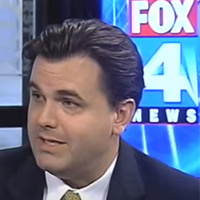 Beaumont White Collar Crime Lawyers, Texas
Beaumont White Collar Crime Lawyers, Texas
Sponsored Law Firm
-
 x
x

Click For More Info:
-
The Law Offices of Richard L. Cooper, P.A.
848 Brickell Avenue Suite 800 Miami, FL 33131» view mapDWI/DUI, Drug Trafficking, Felony Nationally Ranked Top 40 Under 40
With Richard L. Cooper you can expect a trusted confidant who will work diligently to fully understand your case and determine a road map to help you regain control of your life.
800-756-2781
Not enough matches for Beaumont White Collar Crime lawyer.
Below are all Beaumont Criminal lawyers.
Sponsored Lawyers
1-10 of 39 matches
DUI-DWI, Federal Appellate Practice, Domestic Violence & Neglect, , Criminal
Only two lawyers in Southeast Texas are both Board Certified in Criminal Law and Top 100 Trial Lawyers in Texas; Ryan Gertz is one of them. Focused on defending serious state and federal criminal charges, Ryan routinely tries complex cases and has met with great success.
(more)Accident & Injury, Criminal, Insurance, Litigation, Property Damage
As a second generation lawyer, Scott Renick believes strongly in protecting the rights of individuals and the right to trial by jury. Before founding the Renick Law Firm, PLLC, Scott served as a Texas prosecutor and worked at successful law firms focused on fighting for injured people in Texas. Scott focuses his practice on personal injury and insurance disputes. Scott handled hundreds of cases for Texas citizens fighting insurance companies to have their homes repaired the right way from damage caused by Hurricanes Rita and Ike. Scott has served as the President of the Board of Directors for The Garth House, which provides free counseling services to children who are victims of abuse. Scott is a proud member of the Texas Trial Lawyers Association. Scott is admitted to practice in Texas, including the Eastern District of Texas.
(more)



 Richard L. Cooper Miami, FL
Richard L. Cooper Miami, FL AboutMiami Attorney at Law
AboutMiami Attorney at Law ServicesCriminal Defense
ServicesCriminal Defense


